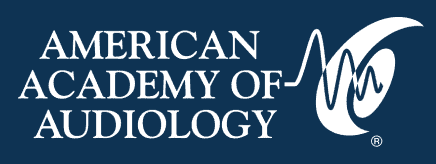This month marks my final “Message from the Chair,” as we look forward to welcoming new leadership in October. To reflect upon this year as chair of the American Board of Audiology (ABA), I wanted to share some intriguing insights into the captivating history of audiology and the crucial role licensure and certification plays in our profession.
Audiology’s Rich Journey
Audiology, the science and practice of diagnosing and treating hearing and balance disorders, boasts a remarkable history dating back to ancient civilizations. From ancient Egyptians’ herbal remedies to the Renaissance scholars’ anatomical explorations, audiology has evolved significantly. Today, modern technological advancements, like hearing aids and cochlear implants, have transformed the lives of millions worldwide, enhancing their quality of life.
The Significance of Licensure
As audiology grew in importance in healthcare, licensure became pivotal in ensuring standardized and competent care. Licensure is a legal requirement in the state or country where you practice, confirming your educational qualifications, supervised clinical training, and successful completion of national examinations. It allows you to deliver the highest standard of patient care while upholding the integrity of our profession.
Congratulations on ABA Certification!
I am delighted that many of you have opted for certification from the ABA, sponsored by the esteemed American Academy of Audiology (Academy). This certification showcases your commitment to professional growth and specialized knowledge. The rigorous evaluation process emphasizes continuous learning and staying abreast of the latest audiological advancements, setting you apart as well-qualified professionals.
The Difference between Certification and Licensure
While both certification and licensure are crucial, they serve different purposes. ABA certifications elevate your standing within the audiology community, emphasizing specialized knowledge and skill. On the other hand, licensure authorizes you to practice audiology in a specific jurisdiction, ensuring patient safety and care.
In Conclusion
Your dedication to both certification and licensure highlights your commitment to delivering exceptional care to patients and advancing the field of audiology. By combining ABA certification with maintaining licensure from relevant authorities, you reinforce your expertise and credibility.
Thank you for your continued dedication to audiology. Together, we strive for better hearing healthcare and positively impact the lives of those with hearing and balance challenges. Here’s to the many years and ears ahead!
Best regards,
Rebecca Lewis, AuD, PhD, ABAC
Chair, American Board of Audiology
Recent Posts
How Do Animals Perceive Music?
Music can be defined as vocal, instrumental, or mechanical sounds, with rhythm, melody or harmony, and often, an expression of human emotion. Music can transcend…
‘Eye’ on Health: AI Detects Dizziness and Balance Disorders Remotely
Interesting research led by audiologist Ali Danesh, PhD, at Florida Atlantic University (FAU) helped develop a novel, proof-of-concept tool to help identify nystagmus using a…
Rizatriptan vs. Placebo for Attacks of Vestibular Migraine: A Randomized Clinical Trial
Jeffrey Staab, MD, and colleagues studied the effectiveness of rizatriptan as a treatment option for vestibular migraine. Their research included 134 patients between the ages of…



